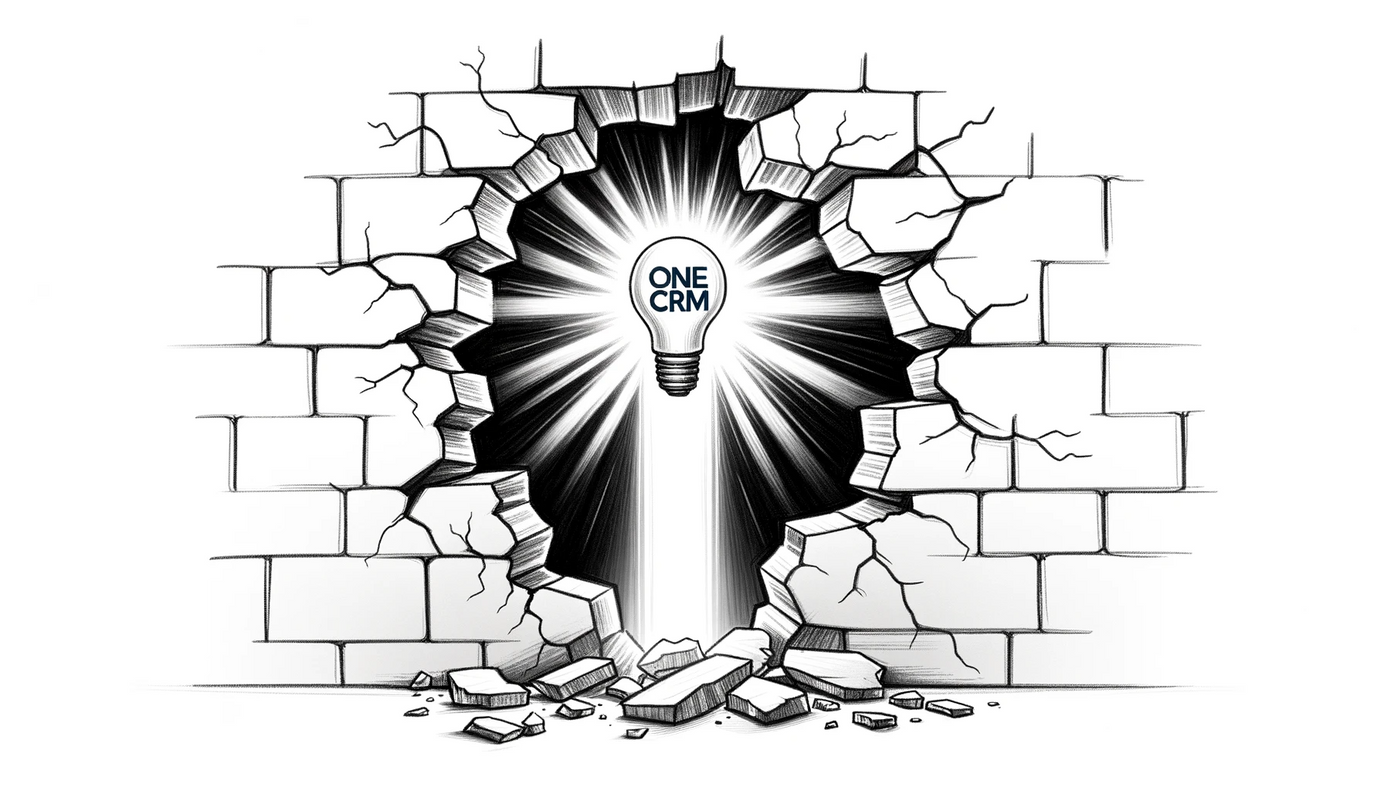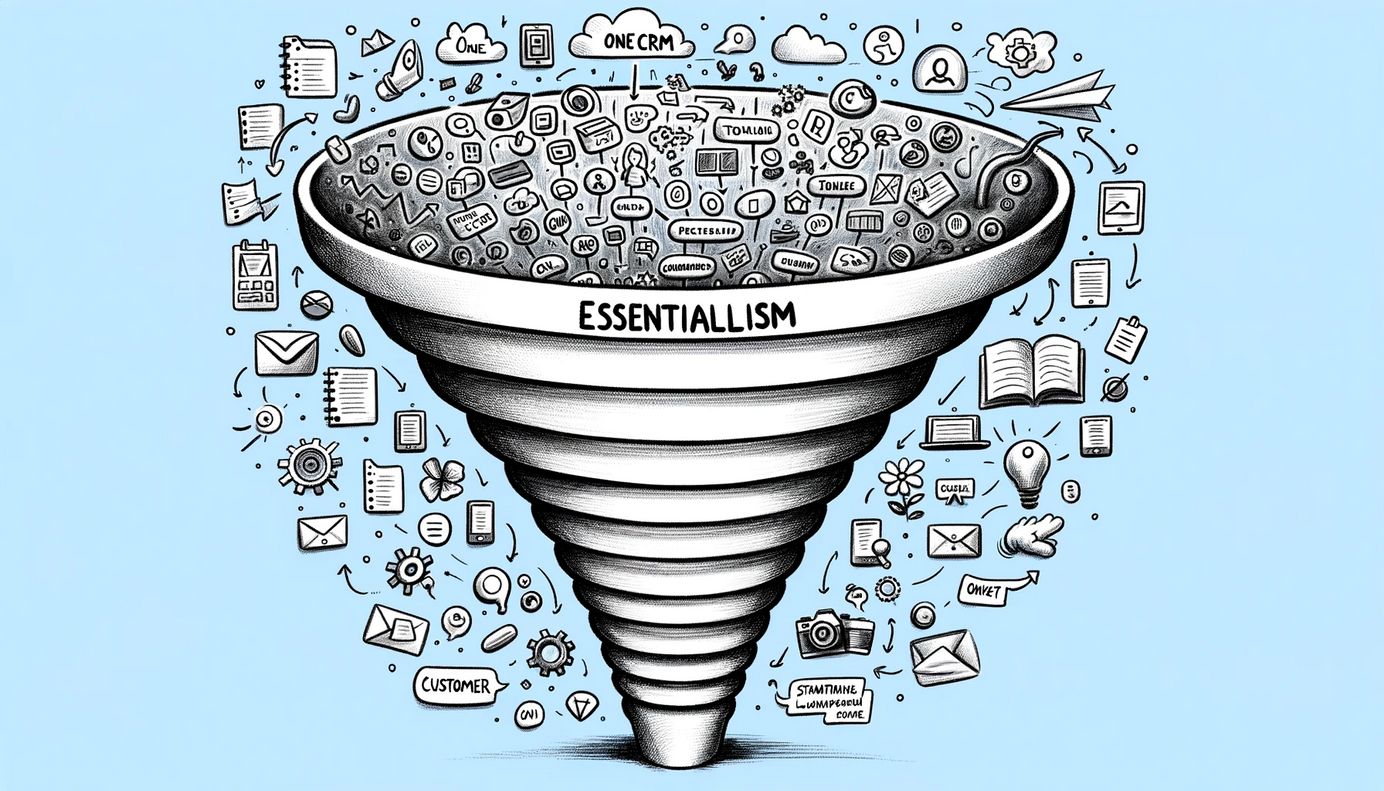
Why We Need OneCRM: The Evolution from Siloed Operations to Unified Collaboration
Table of Contents
The history of business and enterprise solutions is replete with evolving challenges, and OneCRM offers a glance into how we can overcome one of the most enduring ones: organizational silos.
Historical Roots: The Birth of Silos

Startups have historically begun their journeys with closely-knit teams. The unity of place fostered deep inter-team synchronization, with tools like Jira acting as common touchpoints. As these startups took flight and diversified, various departments sprouted, each adopting their distinct tools of choice. Support teams leaned towards Zendesk, Sales squads became fond of SFDC, while Marketing teams integrated Marketo into their operations.
Yet, this evolution, as essential as it was for growth, sowed the seeds of organizational and data silos. These silos, instead of facilitating coordination, became barriers that blocked the free flow of information, hampering true inter-departmental collaboration.
Traditional Scaling and its Drawbacks
Scaling, for many enterprises, inadvertently led to pain points. Picture an engineering team, working diligently, yet blind to vital customer interactions. Or the sales reps, passionately reaching out to clients but unaware of customer grievances or evolving product features. Similarly, support teams found themselves assisting clients without a full understanding of customer histories or ongoing opportunities.
And these weren't isolated challenges faced by an unlucky few. Interactions with industry peers painted a clear picture – the silo phenomenon was pervasive, cutting across business sizes and sectors.
OneCRM: A Beacon of Change

Faced with these stark realities, the inception of OneCRM became inevitable. It wasn't just another tool; it was a vision. A vision to break down these barriers and present businesses with a unified, consolidated platform.
What did OneCRM promise?
Silos have been a persistent challenge for businesses. However, by granting every stakeholder the same context, OneCRM ensures synchronized efforts towards shared goals, fostering a more efficient and productive environment.
1. Unified Platform, Streamlined Processes: OneCRM consolidates various tools and systems into a single platform. This consolidation doesn't mean throwing away existing tools but rather integrating them seamlessly. For example, companies can integrate OneCRM for specific phases, like building and support, while still utilizing tools like Salesforce CRM for their unique needs. This approach ensures that the transition is gradual, minimizing disruption.
2. Real-time Insights and Context: OneCRM offers a powerful solution to the problem of disconnected teams. With real-time data sharing and contextual information readily available, departments can collaborate effortlessly. Sales teams can access the latest product developments, support teams can provide more informed assistance, and marketing can tailor their efforts based on real-time customer feedback.
3. Enhanced Productivity and Efficiency: OneCRM's goal isn't just to sell a product. It's a vision to empower businesses to build, operate, support, and grow more effectively. By eliminating the need for constant data requests and context switching, it allows employees to focus on what truly matters – delivering value to customers and advancing the company's mission.
4. Scalability Without Silos: As companies scale, they often face the challenge of silos becoming more entrenched. OneCRM offers a scalable solution that grows with your business, ensuring that as you expand, you do so without the baggage of silos. Whether you're a startup with a small team or a global enterprise with multiple departments, OneCRM adapts to your needs.
5. Improved Customer Experience: One of the key benefits of OneCRM is the ability to provide a unified and consistent customer experience. With all departments working from the same context, customers receive faster and more accurate responses to their inquiries, leading to higher satisfaction and retention rates.
6. Data-Driven Decision Making: With data flowing seamlessly across departments, businesses can make data-driven decisions with ease. Whether it's product enhancements, marketing strategies, or sales tactics, having access to real-time insights ensures that decisions are well-informed and aligned with business goals.
In conclusion, OneCRM isn't just a tool; it's a transformative approach to modern business operations. It addresses the longstanding challenge of silos that have plagued companies of all sizes and industries. By unifying processes, providing real-time insights, and fostering collaboration, OneCRM empowers businesses to thrive in an increasingly interconnected world. It's not about erasing the past but building a more efficient and agile future. So, the next time you wonder why OneCRM, remember that it's the key to busting silos and unlocking the full potential of your organization.
OneCRM Newsletter
Join the newsletter to receive the latest updates in your inbox.



